While Watching The Tinkerbell Film Franchise We Can See That Pixie Hollow Functions Differently To Our
While watching the Tinkerbell film franchise we can see that pixie hollow functions differently to our own society, for example while all the fairys work in assigned jobs, we never see any evidence that they receive money for their work, furthermore we never see any fairys spending money, however they seem to have all their essentials provided for them. When Tinkerbell arrives at pixie hollow she is assigned a house, and we see that each fairy receives a daily ration of pixie dust. Even when Tinkerbell abandons her job in the first movie we still see her receiving pixie dust. By watching the films critically we can deduce that pixie hollow is a communist utopia that uses no form of currency. In this essay I will
More Posts from Faunjo and Others

Phases of the ring of Saturn. A new astronomy for beginners. 1898.
Internet Archive
a disclaimer for the following post: i wrote this at a time when i was incredibly insecure. i felt incompetent in many areas of my life, and you can see that reflected in the books i chose to include in my list. although i did not lie (i really did enjoy all of the books on the list), these are not books that i think everyone should read. most of them did not change my life; they were good literature, and nothing more. i have grown up a little bit since making the list, and i recognize now how immature it was to make this list of books everyone “should” read, in an attempt to sound educated and feel intelligent. i’m not going to delete the list, because it does have some really good books on it, but life is too short to read books out of a sense of obligation. so either read these because you want to, or read something else instead :)
20 books everyone needs to read at least once because people will reference them in front of you your entire life:
“the faerie queene,” by edmund spenser. this poem is both an epic and an allegory, written in (mostly) iambic pentameter. it is divided up into six books (plus a little bit of a seventh) which you should read, if for no other reason than the fact that there’s supposedly an exclusive book club at harvard university for the select few people who have finished all six sections
“romeo and juliet,” and “othello,” both by shakespeare. these plays both involve two lovers who die because of communication issues. and they’re both super important to read because there are so many references to them, both in other pieces of classic lit., and in modern culture
“the picture of dorian gray,” by oscar wilde. if you can’t tell, this is my favorite book ever. if you can get past the purple prose, it’s one of the most ‘dark academia’ books ever. it’s got references to other famous pieces of literature (which i’ll include on the list), lots of gay shit, a dramatic young adult who loves shakespeare, and ofc, murder
“the brothers karamazov,” by fyodor dostoevsky. actually started reading this one to impress a boy; i think that perhaps he and i have different concepts of what is considered impressive, but the book has turned out amazing, so i’m happy. it has lots of wonderful philosophical and theological discussions. the one thing you may not like is that Dostoevsky constantly goes off on little tangents (like Herodotus). it simultaneously fascinates me and makes me want to smack him with a stick
“the prince,” by niccolo machiavelli. this isn’t classic literature so much as it is political science, but honestly, so many people talk about ‘machiavellianism’ without ever having read the original Machiavellian treatise, and it would be so much better to just read the book and then be able to cite machiavelli himself at your next political-philosophy discussion.
“the canterbury tales,” by geoffrey chaucer. these are classics. they’re filled to the brim with medieval language and sexual innuendo, but that’s part of what makes them so wonderful. if that’s not enough of a selling point, ‘the tale of the deathly hallows’ from “harry potter” is super similar to ‘the pardoner’s tale’ from this book.
“the divine comedy,” by dante alighieri. includes a crap ton of great history references and some super sick burns directed towards the corrupt people of dante’s time.
“meditations,” by marcus aurelius. the original metaphysical journal. probably the epitome of ‘light academia’ if i’ve ever read one
“the great gatsby,” by f. scott fitzgerald. jay gatsby is low-key super relatable…and so is nick, the third wheel…and so is daisy, who feels like women are forced by society to be ‘beautiful little fools’
“the iliad” and “the odyssey,” by homer. i will never ever be able to read ‘the iliad’ again without sobbing hysterically. :’((
“frankenstein,” by mary shelley. not only is this a great book in terms of philosophical potential, but there are so many great things to debate about in it. and, it’s written by a woman :)
“oedipus rex,” by sophocles. my favorite book in 9th grade, though god knows why my mother let me read it then
“metamorphoses,” by ovid. a collection of my all-time favorite myths, which every single person needs to read because it explains how the ancient romans believed the world operated, from the way the sun rises, to the reason we hear echoes.
“the aeneid,” by virgil. suggested by @catilinas :) the final addition to the holy iliad/odyssey/aeneid trinity, written hundreds of years after the last part, by a different author, and in latin instead of the original greek. chronologically ocurrs at about the same time as the odyssey, although from the trojan perspective.
“1984” (suggested by @alexickotowaffle) and “animal farm,” both by george orwell. i’m sticking them together because although the plots are completely different, they both remind me of today’s culture in rather unfortunate ways. but they’re very well written, and i do adore orwell’s style :)
“don quixote,” by miguel de cervantes. an absolutely hysterical book; i kept laughing out loud the entire time i was reading it. it satirizes getting wrapped up in the world of books, to which i’m sure we can all relate.
“hamlet,” by william shakespeare. finally crossed this off of my “to read” list and i absolutely loved it. hamratio (is that the ship name for hamlet x horatio?) is wonderful, the whole play is excellent, and i would highly recommend it
go OFF queen
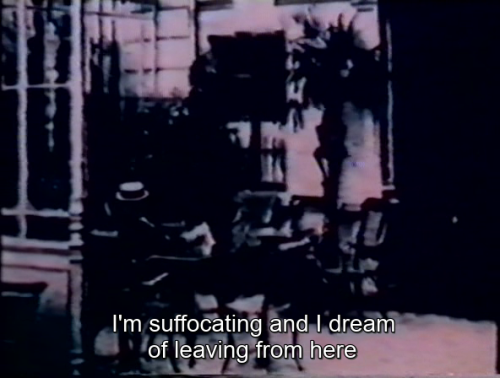
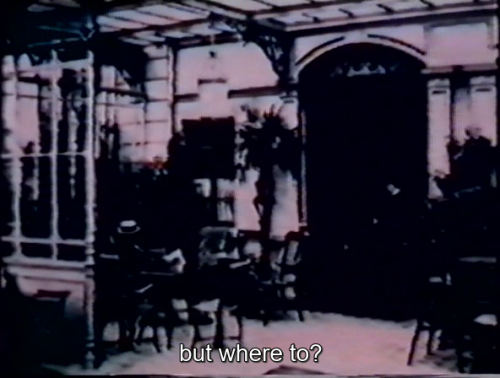
“Anton P. Chekhov - Ein Lebe” 1981
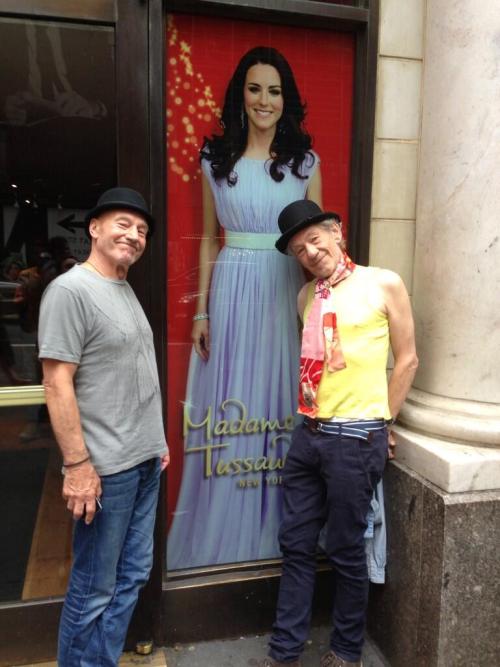
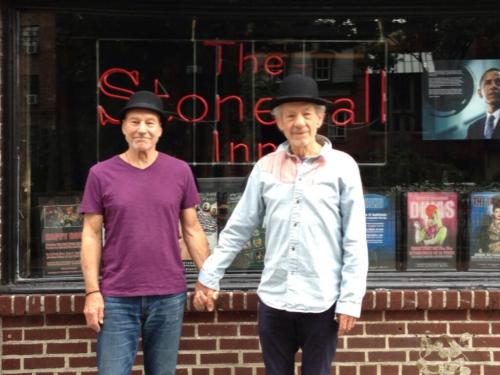
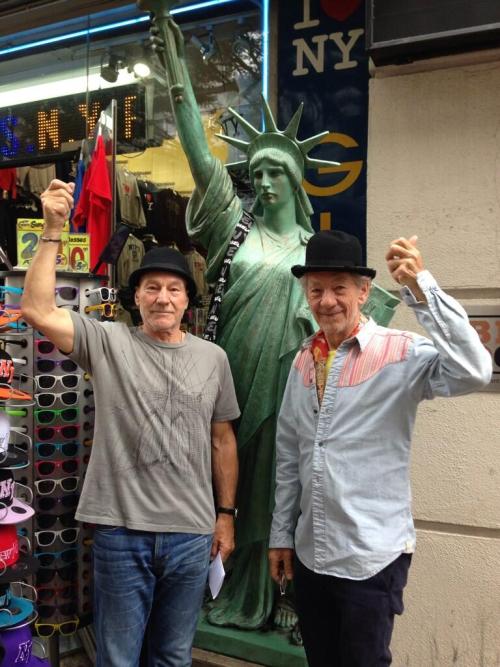
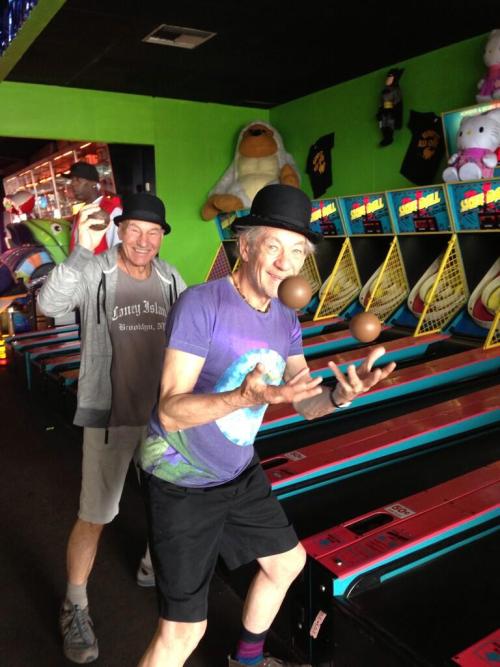
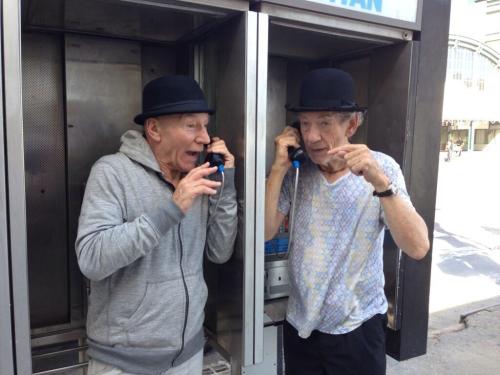
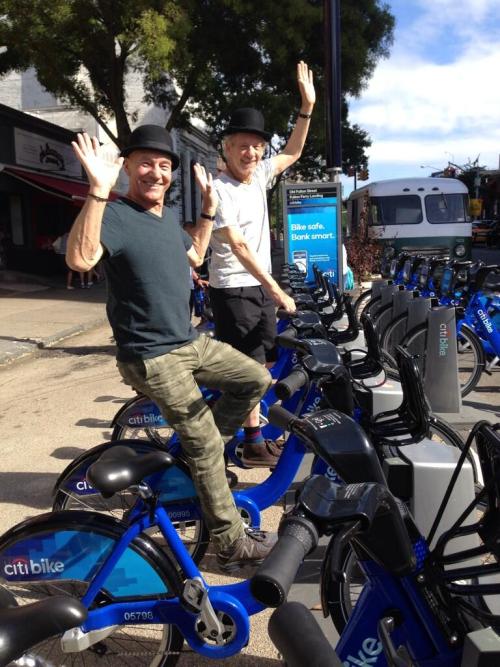
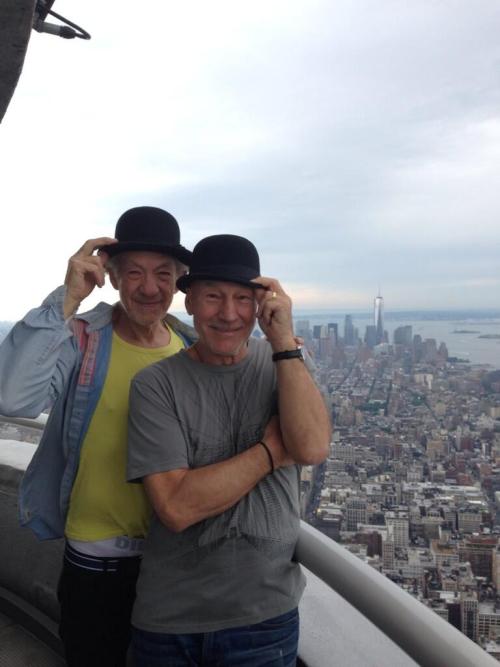


The fact that Sir Patrick Stewart and Sir Ian Mckellen are best friends in real life makes me so happy
x
dark academia literary works: a masterlist
Hello! I replied to this post on Reddit today, trying to compile all the dark academia books I could think of, and then thought that maybe all of you here might find it useful too, so here you go. It is a very, very broad list, a mix of classic and contemporary literature, and there is no set criteria besides having a dark vibe (this includes murder and crime but could just be the way it’s written as well) and portraying an academic setting, most of the time from the student’s point of view. I haven’t read all of these myself and so I can’t judge on quality, but hopefully this will inspire people to add on to it in the comments.
Here you go!
The Lessons by Naomi Alderman Truly, Devious by Maureen Johnson The Secret History, Donna Tartt If We Were Villains by M. L. Rio Maurice by E. M. Forster The Picture of Dorian Gray by Oscar Wilde Possession by A.S. Byatt The Truants by Kate Weinberg The Prime of Miss Jean Brodie by Muriel Spark Vicious by V. E. Schwab The Raven Cycle by Maggie Stiefvater (tangentially related) A Little Life, Hanya Yanagihara Brideshead Revisited by Evelyn Waugh Never Let Me Go by Kazuo Ishiguro The Likeness by Tana French The Rachel Papers by Martin Amis Ninth House by Leigh Bardugo (coming out tomorrow!) Jane Eyre by Charlotte Brontë The Lake of Dead Languages by Carol Goodman Oleanna by David Mamet Special Topics in Calamity Physics by Marisha Pessl The Marriage Plot by Jeffrey Eugenides
Other classics that are not Dark Academia in content, but which I would include in a list of the DA canon: The Iliad and The Odyssey by Homer Shakespeare’s plays (Macbeth, Hamlet are good ones to start with) A Separate Peace, John Knowles The Bacchae, Euripides Greek tragedies (a good one to start with is Antigone, very popular and staged many a time) Leaves of Grass by Walt Whitman Beat generation literature Jane Austen’s books (light academia, anyone?)


Neil and Todd sharing tender looks while Charlie recites She Walks in Beauty by Lord Byron:
“She walks in beauty, like the night Of cloudless climes and starry skies; And all that’s best of dark and bright Meet in her aspect and her eyes.”
I love how the scene’s focus is not on the girl’s reaction to the poem that’s being read to her, but mostly on these two. Very interesting.
i wanna study classics and i wanna study english literature and i wanna study mathematics and i wanna study chemistry and i wanna study languages and i wanna study botany and i wanna study medicine and i wanna study history and i wanna-
safe house rules
-
 sadgirlblogsstuff liked this · 4 months ago
sadgirlblogsstuff liked this · 4 months ago -
 churchofthestarrychildren reblogged this · 7 months ago
churchofthestarrychildren reblogged this · 7 months ago -
 batfam-stuff-posts-0 liked this · 8 months ago
batfam-stuff-posts-0 liked this · 8 months ago -
 keychainjar liked this · 8 months ago
keychainjar liked this · 8 months ago -
 grilchis liked this · 9 months ago
grilchis liked this · 9 months ago -
 fallenforonedisneyvillain reblogged this · 10 months ago
fallenforonedisneyvillain reblogged this · 10 months ago -
 unluckytech liked this · 1 year ago
unluckytech liked this · 1 year ago -
 vee-mage liked this · 1 year ago
vee-mage liked this · 1 year ago -
 bbulbasaurus-rex liked this · 1 year ago
bbulbasaurus-rex liked this · 1 year ago -
 beesandfigs-abandoned liked this · 1 year ago
beesandfigs-abandoned liked this · 1 year ago -
 thinkyourhouseshaunted reblogged this · 1 year ago
thinkyourhouseshaunted reblogged this · 1 year ago -
 thinkyourhouseshaunted liked this · 1 year ago
thinkyourhouseshaunted liked this · 1 year ago -
 lazyspeedy reblogged this · 1 year ago
lazyspeedy reblogged this · 1 year ago -
 superheroesaremyjam113263 reblogged this · 1 year ago
superheroesaremyjam113263 reblogged this · 1 year ago -
 superheroesaremyjam113263 liked this · 1 year ago
superheroesaremyjam113263 liked this · 1 year ago -
 once-upon-a-time-a-crow liked this · 1 year ago
once-upon-a-time-a-crow liked this · 1 year ago -
 chocolate-mallowmelt reblogged this · 1 year ago
chocolate-mallowmelt reblogged this · 1 year ago -
 chocolate-mallowmelt liked this · 1 year ago
chocolate-mallowmelt liked this · 1 year ago -
 ddducks reblogged this · 1 year ago
ddducks reblogged this · 1 year ago -
 cassarson reblogged this · 1 year ago
cassarson reblogged this · 1 year ago -
 cassarson liked this · 1 year ago
cassarson liked this · 1 year ago -
 i-ad-kad-kad-i-ad reblogged this · 1 year ago
i-ad-kad-kad-i-ad reblogged this · 1 year ago -
 tin-the-can reblogged this · 1 year ago
tin-the-can reblogged this · 1 year ago -
 tin-the-can liked this · 1 year ago
tin-the-can liked this · 1 year ago -
 psychosummerchild liked this · 1 year ago
psychosummerchild liked this · 1 year ago -
 youurelovely reblogged this · 1 year ago
youurelovely reblogged this · 1 year ago -
 froginateacup liked this · 1 year ago
froginateacup liked this · 1 year ago -
 jellyaxce reblogged this · 1 year ago
jellyaxce reblogged this · 1 year ago -
 jellyaxce liked this · 1 year ago
jellyaxce liked this · 1 year ago -
 arithmeticanimaniac reblogged this · 1 year ago
arithmeticanimaniac reblogged this · 1 year ago -
 zetsubobilly liked this · 1 year ago
zetsubobilly liked this · 1 year ago -
 the-significant-clam reblogged this · 1 year ago
the-significant-clam reblogged this · 1 year ago -
 bobisnolongerhere reblogged this · 1 year ago
bobisnolongerhere reblogged this · 1 year ago -
 johanthefriskiestofbits reblogged this · 1 year ago
johanthefriskiestofbits reblogged this · 1 year ago -
 pastel-crystal-dagger liked this · 1 year ago
pastel-crystal-dagger liked this · 1 year ago -
 gay-cowboy-agenda liked this · 1 year ago
gay-cowboy-agenda liked this · 1 year ago -
 train-whistles-at-night reblogged this · 1 year ago
train-whistles-at-night reblogged this · 1 year ago -
 roach-witch reblogged this · 1 year ago
roach-witch reblogged this · 1 year ago -
 roach-witch liked this · 1 year ago
roach-witch liked this · 1 year ago -
 stardragon68 liked this · 1 year ago
stardragon68 liked this · 1 year ago -
 sketchesandnonesense liked this · 1 year ago
sketchesandnonesense liked this · 1 year ago -
 a-christmas-fruitcake reblogged this · 1 year ago
a-christmas-fruitcake reblogged this · 1 year ago -
 karmajam liked this · 1 year ago
karmajam liked this · 1 year ago -
 blessedwasthedaylight liked this · 1 year ago
blessedwasthedaylight liked this · 1 year ago -
 finndiseicla liked this · 1 year ago
finndiseicla liked this · 1 year ago -
 daluckdragon26 reblogged this · 1 year ago
daluckdragon26 reblogged this · 1 year ago -
 daluckdragon26 liked this · 1 year ago
daluckdragon26 liked this · 1 year ago -
 bullseyegames liked this · 1 year ago
bullseyegames liked this · 1 year ago
